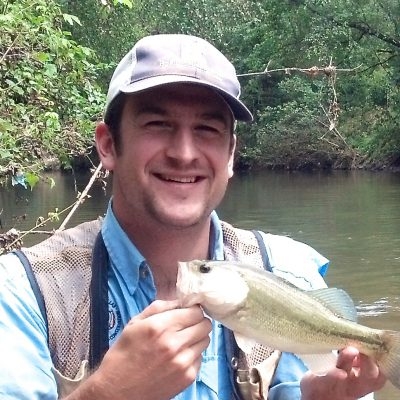Carl Wepking
What’s That Smell? Antibiotic Resistance Research!
Ph.D. student Carl Wepking and his team research the effects of added antibiotics in local farming soil ecosystems.

Research endeavors of all types are constantly ongoing in the labs across Virginia Tech's campus. Walking up to the lab and office of Carl Wepking in Derring Hall provided an interesting first impression and one of mild displeasure: the room smelled like cow manure.
After meeting Wepking and discussing his current research, I realized it was indeed the smell of cow feces circulating through the air via the soil samples being analyzed on the table in front of us.

Wepking, a Ph.D student in biological sciences in the College of Science and an Interfaces of Global Change Fellow, currently studies the effect of antibiotic use in livestock production on soil microbes and the ecosystem functions that they regulate. This research mainly focuses on the effects of antibiotics on the environment. Specifically, Wepking works to determine the effects on soils and how antibiotics can influence microbes, which can therefore effect the greater cycling of important nutrients like carbon and nitrogen.
The project is a timely endeavor as the science for the research only started roughly 5 years ago because of regulations created by the FDA and CDC. A call for stricter legislation led to these regulations to protect the families and individuals living near antibiotic-fueled agricultural sites.
In order to bring greater attention to the issue of antibiotic resistance, Wepking has published a nationwide study on soil from areas with large cattle presence versus those with none. This study addresses one of the largest problems the team is facing in their research: understanding the effect of the manure itself separately from the effect of the antibiotics. High input sites, such as those observed in their local farm collections, versus low input sites used as the control in the study, helps to decipher the outcomes of the various elements of this microbial ecology research.
These communities, similar to those found in the greater Blacksburg community, can experience antibiotic resistance and additional major health concerns. Wepking and his team are working to learn more about the role the antibiotics play and trying to document the effects that agricultural antibiotics are having on soils in this region.
“This project is important from two angles,” Wepking explained. “It’s worrisome from a human health perspective but also the microbes in the soil have to work harder, which causes them to burn through soil organic matter inefficiently. This can have negative effects on the long term sustainability of soils.”
The team, comprised of Wepking along with a handful of undergraduate researchers and advisor Mike Strickland, a soil biologist now at the University of Idaho, performs field work locally at Kentland Farm.
Along with collecting soil samples, Wepking and his team must also evaluate the ecosystems in the spring during peak plant growth season. The project has been ongoing for two years and is projected to conclude within the next academic year.
“Ultimately, we need to ask ourselves what effect these antibiotics can have on the ecosystems as a whole,” Wepking said. “Antibiotics in general are a pretty modern tool but their role in soils and the idea of antibiotic resistance as a result isn’t always thought of right away. Through our research, I’m hoping to come to some concrete conclusions of how this cycle can have a longstanding impact on the natural and agricultural systems.”
Article written by Ali Marhefka while participating in ENGL 4824: Science Writing in Spring 2017 as part of a collaboration between Fralin and the Department of English at Virginia Tech.




